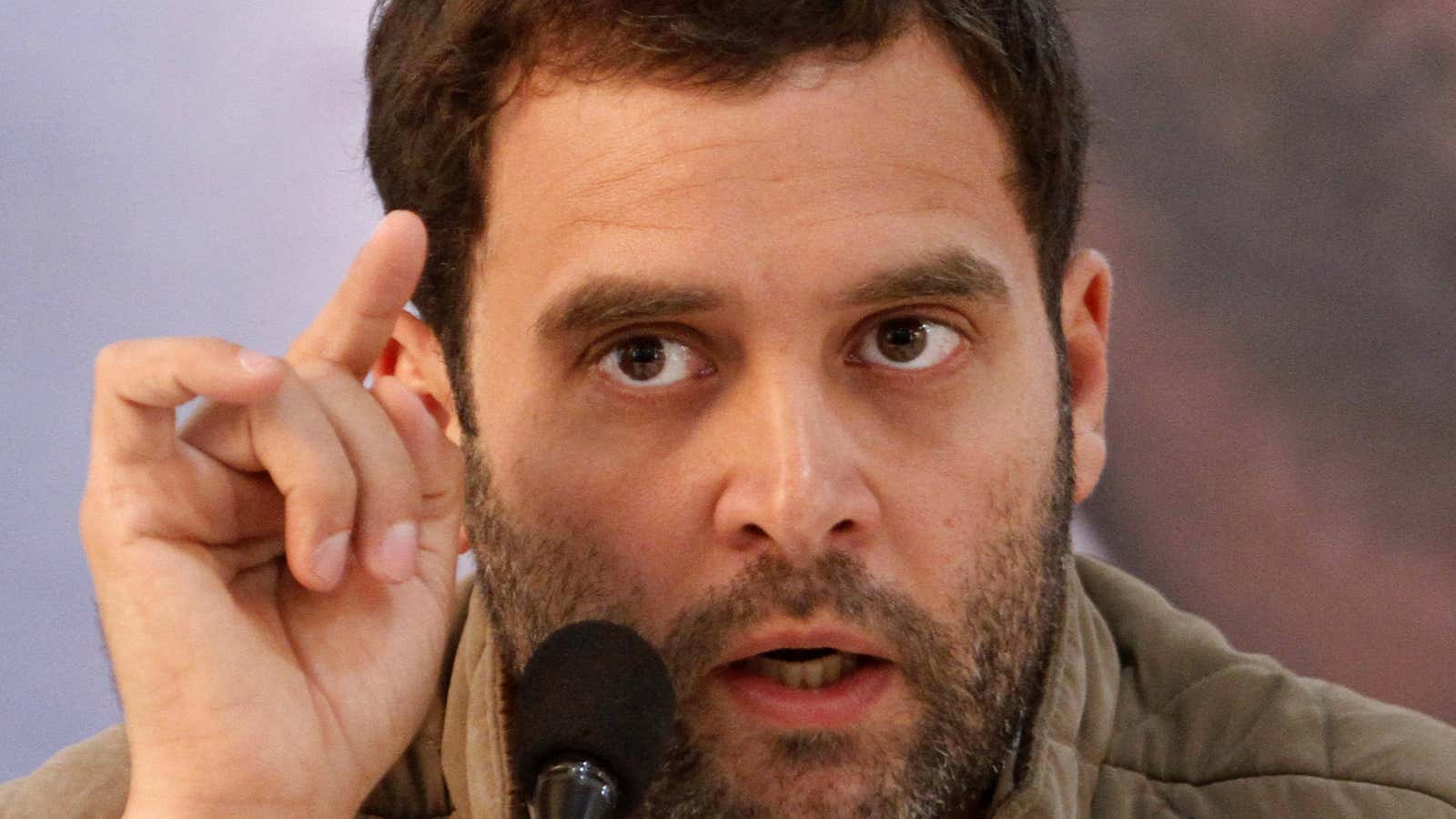Rahul Gandhi should need no introduction. He is the great-grandson of Jawaharlal Nehru, India’s first prime minister; the grandson of Indira Gandhi, the country’s second longest serving prime minister; and the son of Rajiv Gandhi, prime minister from 1984 to 1989. In fact, for more than half of India’s Independence, a member of the Nehru-Gandhi family has been prime minister (the Gandhi family is unrelated to Mahatma Gandhi). Over the next few days, a reshuffle of the ruling Congress party’s cabinet is planned. According to some news reports, Rahul Gandhi will be elevated to the No. 2 position of the party.
That means, as long has been suspected, that he’s in line to succeed Manmohan Singh, India’s current octogenarian economist prime minister. Till last week’s reform, Singh had been under fire, accused of being slow to embrace reforms and preempt slowing growth. But while everyone knows Rahul Gandhi and views him as the scion, little is actually known about him. And given the current uncertainty gripping India economically and politically, it’s worth forcing him to answer a few questions:
What is your vision for India? Where do you see India in five years? Ten years? Next year? Economically, how does India succeed? What growth rate should we strive for? What economic model do we adopt? Do we have our own? Do we eventually embrace US-style capitalism fully or do you prefer the European way? Do you believe in foreign capital and foreign investment?
There is so much that we want to know about your economic program. We know that you believe in the “Aam Admi,” the Hindi phrase referring to the common man, but so does everyone. That’s a political slogan, not an economic policy.
Between Indian independence in 1947 and the reforms of 1991, socialist policies kept India poor. Between 1991 and 2004, economic reform served India well. Then with your government in leadership for the last eight years, we fell into a policy funk. We just instituted a set of big-bang economic reforms, but my question would be why didn’t we do this in 2004? Why the wait? Is crisis the only time for action? Do you not have a playbook or strategy for what you want to do? What is that playbook?
I can’t point to a speech or article that says this is what Rahul Gandhi believes, this is where he wants India to go. Believe me, I have looked. For someone has been in public life, willingly or unwillingly, for so long, I am hard pressed to say that whether you are a socialist or a capitalist. There’s a reason so many politicians in the West write a book before they run for office. It gives the public a sense of who they are, their rearing, their belief system, their politics. In your case, we’d settle for even a few interviews. Engage India’s free press.
What has been your government’s biggest accomplishment and failure in the last decade? In 2008, your government stood its ground on the Indo-US nuclear deal, which allowed India to purchase nuclear fuel and technology from the US. You spoke up (for a change), arguing, “The nuclear deal is fundamental for India’s future. … It is fundamental for the nuclear industry. It’s important for India to become a large player.”
Yet since then, a historic moment that took India off the nuclear pariah list, we have commissioned a grand zero megawatts of nuclear power. And it looks to be sometime more before India sees any new nuclear power addition.
The one issue you and your government took a deep and passionate stance on has led to little on the ground change for anyone. Might that be your greatest accomplishment is also your greatest failure? Or would you consider your government’s greatest accomplishment one of the recently launched social schemes? Few would dispute the objective of the programs, to reduce poverty. But who is going to pay for them? Our fiscal deficit is at alarming levels and growth is slowing down precipitously. Without growth, we won’t be able to pay for the programs. So again, is your greatest accomplishment going to turn into one of your greatest failures?
Where are you? On Sept. 20, the prime minister said that India is facing its worst economic crisis since 1991—hardly reassuring since that’s the year the Republic of India nearly went bankrupt. Surely, this is a time to step and lead. If there was a time to show decisiveness and reassure a nation, now would be it. But we can’t seem to find you.
A Google search on Rahul Gandhi yields a few major news stories yet none on your thoughts on economic reform. Two of the competing party’s stalwarts, Sushma Swaraj and Narendara Modi, are on Twitter all the time. The regional party leaders jostle to get on the nightly television news. And you? Biographer Aarthi Ramachandran describes you as “extremely reclusive.“ For a man who could potentially lead a fifth of humanity in the world’s largest democracy, your sightings are more akin to a leader in China or North Korea than that of a vibrant, thriving democracy.
What’s truly amazing is that in the age of Facebook and Twitter, so little is known about you. Indeed, Ramachandran says, “there is very little verifiable information about the smallest of things such as his educational qualifications in the public domain.” Not even a LinkedIn profile. As a leader of India’s 600 million young, you know that India has embraced Facebook, Twitter, LinkedIn in a big way. Maybe it’s time you did. It might help Indians answer the biggest question of all: “Who are you?”




